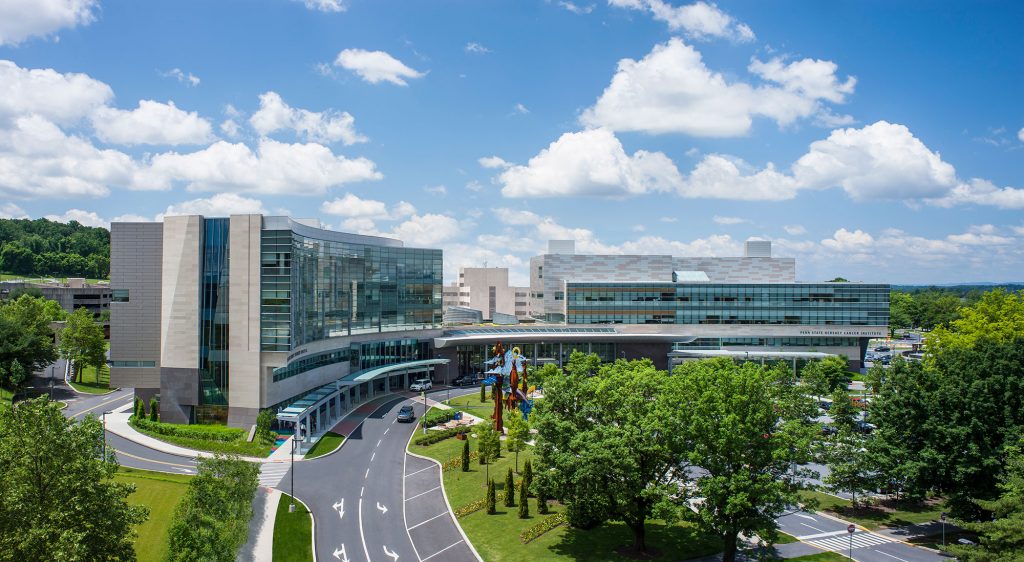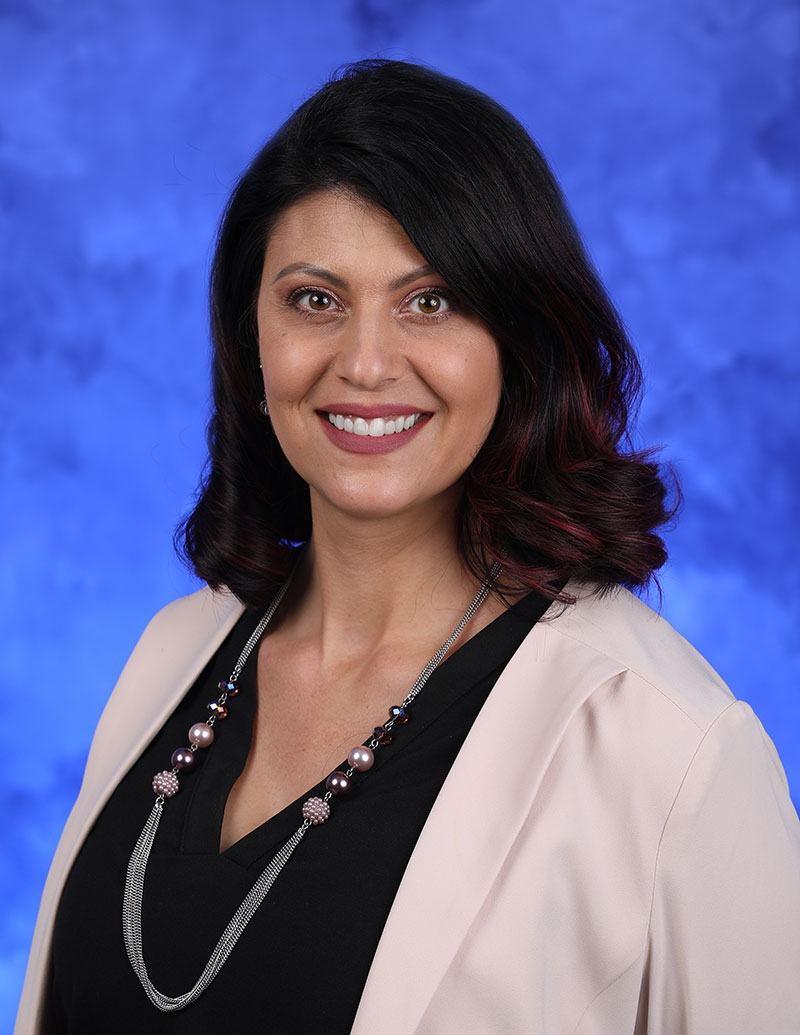Jump to topic
Search
Program Details
The mission of the Hospice and Palliative Medicine Fellowship is to train leaders and academicians in the care of those with potentially life-limiting illness.
Palliative medicine is medical care focused on providing comfort for the seriously ill through the relief of symptoms and stress. This type of medical care is useful at any stage of illness, and can be provided along with curative treatments. Palliative care work is dedicated to a strong belief that individuals should live well and attain the highest quality of life, regardless of the nature or severity of their illness or the need for other therapies.
Palliative medicine integrates the emotional and spiritual well-being of the patient and family into the management of pain and other physical symptoms of illness.
The Palliative Medicine team guides patients and families who are making decisions while working toward their goals throughout their course of illness. The team collaborates with professional and informal caregivers in various settings to ensure coordination, communication and continuity of care across institutional and home care settings with the goal of providing seamless care.
Learn More about the Fellowship
Several faculty members from the Hospice and Palliative Medicine Fellowship have published noteworthy articles.
- Susan Glod’s A Piece of My Mind article
- Susan Glod’s Subjective‐Objective‐Assessment‐Plan–Value model of medical education
- Margaret Kreher’s Medical Clinics chapter on Symptom Control at the End of Life
- Scott Shreve’s article on Concurrent Care for Veterans with Cancer at the End of Life
- Amy Westcott’s Medical Clinics chapter on Artificial Nutrition and Hydration at the End of Life
- Drs. David Wenner and Amy Westcott’s WITF interviews on Finding Peace
Applications for the Hospice and Palliative Medicine Fellowship are only accepted through ERAS in accordance to the NRMP Specialties Matching Service policies and schedules. Refer to the official AAMC ERAS Fellowship website for details.
For informal inquiries, contact the program.
Interview Details
The program interviews on Thursdays in late August through mid-October. Those selected to interview will be contacted directly. Interviews are being held virtually.
Virtual Tour
Penn State Health
Penn State Health is a multi-hospital health system serving patients and communities across 29 counties of Pennsylvania. Its mission is to improve health through patient care, research, education and community outreach.
In December 2017, the system partnered with Highmark Health to facilitate creation of a value-based, community care network in the region. The shared goal of Highmark and Penn State Health is to ensure patients in the community are within:
- 10 minutes of a Penn State Health primary care provider
- 20 minutes of Penn State Health specialty care
- 30 minutes of a Penn State Health acute care facility
Learn more about Penn State Health

Penn State Health Children’s Hospital (left), Penn State Health Milton S. Hershey Medical Center (center) and Penn State Cancer Institute (right)
Penn State Health Milton S. Hershey Medical Center
500 University Dr., Hershey, Pa., 17033 (Derry Township, Dauphin County)
- The health system’s 647-bed flagship teaching and research hospital
- The only medical facility in Pennsylvania accredited as both an adult and a pediatric Level I (highest-level) trauma center
- Dedicated surgical, neuroscience, cardiovascular, trauma and medical intensive care units
- Accredited Life Lion critical-care transport providing more than 1,100 helicopter and approximately 750 ground ambulance transports per year
- More than 1,300 faculty members and more than 650 residents and fellows
- Approximately 29,000 admissions, 73,000 emergency department visits, 1.1 million outpatient visits and 33,000 surgical procedures annually
- Designated as a Magnet hospital since 2007
Learn more about Milton S. Hershey Medical Center
Penn State Health Children’s Hospital
600 University Dr., Hershey, Pa. 17033 (Derry Township, Dauphin County)
- An eight-story, 263,000-square-foot-facility built in 2013 and expanded in 2020
- 146 licensed pediatric beds, 18 acute care beds and a 56-bed neonatal intensive care unit
- Level IV (highest-level) neonatal intensive care unit
- Level I quaternary (highest-level) pediatric intensive care unit
- Level I (highest-level) pediatric trauma center designation
- Intermediate care unit
- Dedicated pediatric operating rooms
- More than 150,000 pediatric outpatient visits and approximately 5,000 pediatric patient discharges annually
Welcome to Hershey
More About Hershey
Interested in learning more about living and working in Hershey, Pa.? See details here:
Wellness, including emotional, spiritual, social and physical health, is a crucial component to training and to becoming a professional, compassionate and resilient physician. Self-care is a skill which must be continually practiced and reinforced. Penn State College of Medicine and Penn State Health are committed to addressing wellness among residents and fellows, with multiple resources readily available.
Institutional resources
- Visit BeWell – a health program designed to support Penn State Health employees
- See Penn State College of Medicine wellness resources here
- Employee Health Care Concierge and Case Management Service
- Partners in Medicine
Moving to a new city with your family does not have to be stressful. Residency programs have assisted many significant others with finding employment. There is also a GME-Wide Partners in Medicine (PIM) group that offers networking opportunities as well as various social and community oriented activities. - The Doctors Kienle Center for Humanistic Medicine
- Active and easily accessed Office of Professional Mental Health
Graduate medical education resources
Institutional Resources
Penn State Health and Penn State College of Medicine celebrate, embrace and support the diversity of all patients, faculty, staff, students and trainees.
Office for Diversity, Equity and Inclusion
In keeping with this, Penn State Health has an active Office for Diversity, Equity and Inclusion with various programs, networks and resource groups, including:
- Talks and lectures on diversity, equity and inclusion through the Inclusion Academy
- Regular events on topics such as eradicating racism and creating a culture of inclusiveness
- Many Business Employee Resource Groups (BERGs), including:
- Disability Business Employee Resource Group
- Interfaith Business Employee Resource Group
- LGBTQ+ Business Employee Resource Group
- Military and Veterans Business Employee Resource Group
- Multicultural Business Employee Resource Group
- NextGen Business Employee Resource Group
Learn more about the Penn State Health Office for Diversity, Equity and Inclusion
Learn more about the College of Medicine’s Office for Diversity, Equity and Belonging
Office for Culturally Responsive Health Care Education
The vision at Penn State College of Medicine and Penn State Health is to equip learners with the knowledge, skills and attitudes they will need to provide culturally excellent health care and research for an increasingly diverse U.S. population. The Office for Culturally Responsive Health Care Education was formed to help meet that goal.
Learn more about the Office for Culturally Responsive Health Care Education
Office for a Respectful Learning Environment
In addition, the institution does not tolerate discrimination, biases, microaggression, harassment or learner mistreatment of any kind, and any concerns are immediately addressed by the Office for a Respectful Learning Environment.
Learn more about the Office for a Respectful Learning Environment
Network of Under-represented Residents and Fellows
The Network of Under-represented Residents and Fellows (NURF) is a group of diverse residents and fellows representing all specialties. NURF’s goal is to promote cultural diversity in the residency programs through community involvement, mentorship with diverse faculty, professional networking and support for the recruitment of diverse medical students into the residency programs.
NURF is sponsored by the Penn State College of Medicine Graduate Medical Education Office and the Penn State Health Office for Diversity, Equity and Inclusion.
Curriculum Details
The Department of Medicine at Penn State Health Milton S. Hershey Medical Center was approved by the ACGME in 2015 for the Hospice and Palliative Medicine Fellowship. The one-year comprehensive clinical training program is based at Penn State Health Milton S. Hershey Medical Center, with away rotations at Lebanon VA Medical Center, Hospice of Central Pennsylvania and Oak Hill Village.
In addition to a complete schedule of clinical conferences and journal clubs to supplement the patient care activities of the Palliative Care Service, the program has a special interprofessional peer-driven curriculum that includes nursing and chaplaincy. One trainee is accepted each year into the program.
The clinical expertise of the interprofessional faculty includes all components of comprehensive care of patients/families living with life-limiting illness to ensure a whole-patient perspective.
The academic mission of the Palliative Center of Excellence embraces scholarship in both clinical and educational domains. The program offers several didactic series, both at the departmental and divisional level. The fellow presents a journal club at least once a year, and has opportunities to participate in national didactics that connect fellows with other HPM fellows in programs throughout the US. Each fellow also has the opportunity to participate in system-wide quality improvement efforts and various teaching activities throughout the fellowship.
- Fellows will provide enhanced care coordination by explicit navigation assistance for palliative patients as they leave the hospital and engaging in best communication practices with the interprofessional team from Hospice of Central Pennsylvania.
- Fellows will have interprofessional learning by making joint care visits with interdisciplinary team members, including visits to patient homes, nursing homes and residential homes.
- Fellows will be participating members of the Inpatient Palliative Care Consult Team for six months.
- Fellows will facilitate care coordination through explicit navigation assistance and follow-up for palliative care patients as they transition into the Outpatient Continuity Clinic in the Cancer Institute.
- Fellows will participate in “Fellow as Teacher” with assigned curriculum development and implementation based on a needs assessment of an interprofessional team within our health system or community.
Hospice and Palliative Home Care
Fellows will gain extensive experience managing hospice and palliative patients through time spent with Hospice of Central Pennsylvania. Fellows will participate in a minimum of 25 home visits, and actively participate in the interdisciplinary team meetings. Fellows will also spend a minimum of two weeks at the Carolyn’s House residential hospice house.
Inpatient Palliative Care Consultation Service
Fellows will spend a minimum of four months with the interprofessional inpatient consultation teams.
Outpatient Clinic
Fellows will maintain their own half-day outpatient clinic practice under the supervision of the palliative care faculty. Fellows will follow new patients longitudinally in the ambulatory setting as well as across settings if the patients are admitted to the hospital, a long-term care facility and/or hospice.
Long-Term Care
Fellows will learn how to provide palliative care for frail older adults residing in long-term care during dedicated time at HMC-affiliated communities.
Pediatric Palliative Medicine Rotation
Fellows will spend two weeks with the Hummingbird Program at Penn State Children’s Hospital.
Electives
Electives include ALS, surgical oncology, pain control and physical medicine and rehabilitation.
Projects will leverage the agenda of Penn State Health Milton S. Hershey Medical Center’s Chief of Patient Safety/Quality, focused on transitions of care, interprofessional education and/or the patient/family experience.
Milestones will include:
- Abstract submission to a national conference
- Manuscripts submitted for publication
Fellows will be paired with faculty mentors who will guide in the acquisition of competence in the clinical, teaching, research and advocacy skills pertinent to the discipline, serve as a clinical supervisor in an inpatient or outpatient setting, develop curricula, and/or participation in didactic activities.
Fellows will participate in semi-structured peer-mentoring with an interprofessional peer group.
Latest News from Palliative Care







